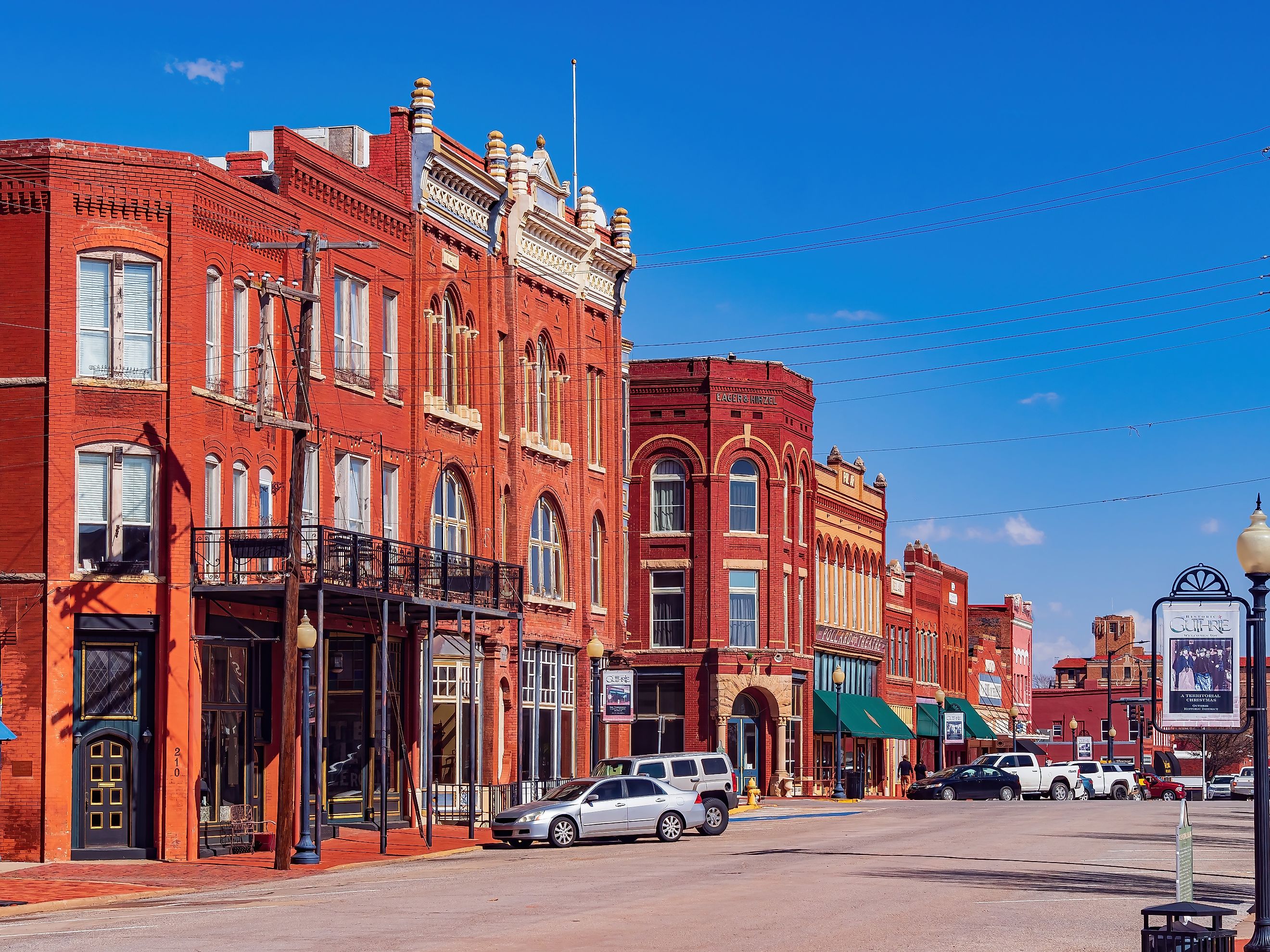
These Small Towns In The American South Were Once State Capitals
The American South is not only rich in history and culture but also in political significance. One of the most fascinating yet lesser-known aspects of the region is the fact that some of its most attractive small towns once served as state capitals before relinquishing that title, sometimes after just a few days, sometimes many years later.
Today, these former seats of government offer a unique glimpse into the early days of American politics as well as the growth and development of the Southern states themselves. Whether home to elegant antebellum mansions or revolutionary war sites, each of these small towns tells a fascinating story not only of its state's development but also of the making of the American South.
Washington, Georgia
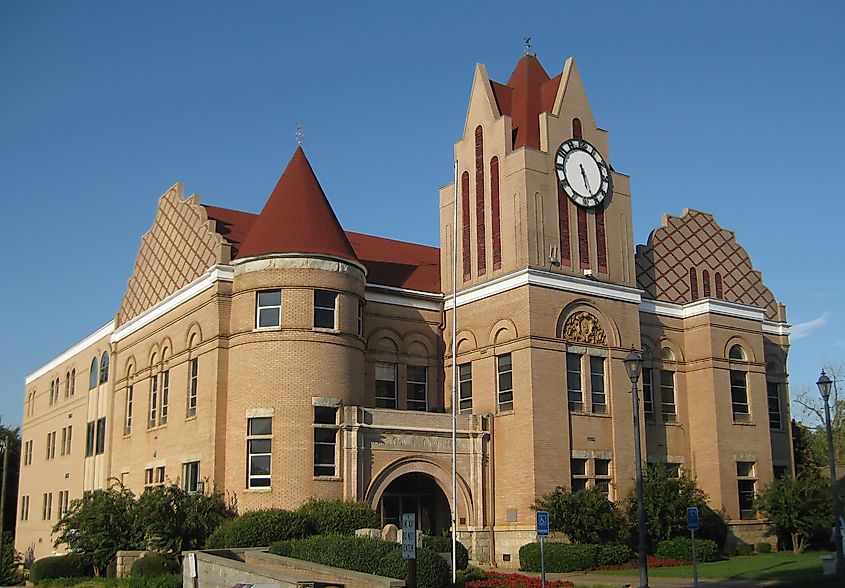
Washington in eastern Georgia holds the distinction of being the very first of 88 US towns and cities to have been named after George Washington. It also briefly served as the state capital for around 11 months starting in 1780 during the American Revolutionary War after the British occupied the then capital of Savannah. Now listed on the National Register of Historic Places, this attractive town boasts over 100 well-preserved antebellum and Victorian-era structures.
Visitors can learn more about the town’s past at the Washington Historical Society Museum, housed in a beautiful 1835 Greek Revival building, and the Robert Toombs House State Historic Site, home of the Confederate Secretary of State. Another must-see is the Callaway Plantation, a 56-acre historic restoration project providing a fascinating glimpse into 18th and 19th-century rural life.
Milledgeville, Georgia
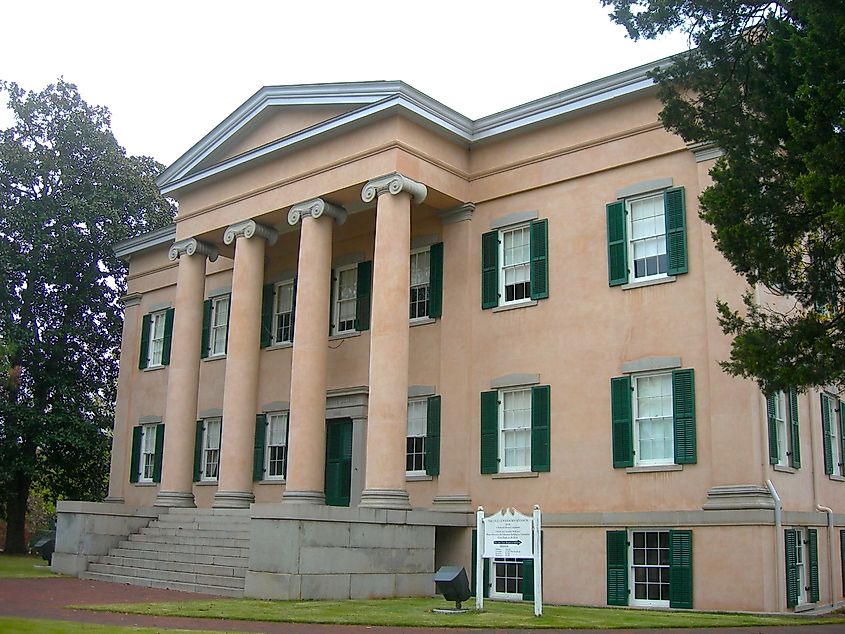
Milledgeville is another small town that once served as Georgia's capital, this time from 1804 to 1868, during a crucial period that included the Civil War. Located in the central part of the state about 100 miles southeast of Atlanta, Milledgeville was purpose-built to be the capital, with wide streets and a carefully planned layout, its time as the seat of government only ended when the capital was moved to Atlanta in the post-Civil War Reconstruction era.
Today, Milledgeville is known for its well-preserved antebellum architecture, with top attractions like Georgia’s Old Governor's Mansion, a National Historic Landmark, providing a glimpse into the past, and Georgia's Old Capital Heritage Center at The Depot with its collections and exhibits relating to over 10,000 years of history.
Donaldsonville, Louisiana
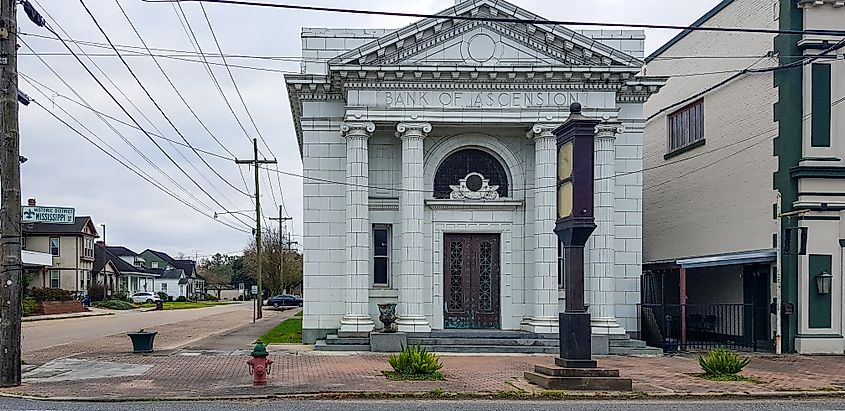
Donaldsonville’s position on the west bank of the Mississippi River made it an obvious candidate for Louisiana's state capital, a title it held from 1830 to 1831 before political maneuvering saw the honor handed back to New Orleans. Despite this brief tenure, Donaldsonville's role as capital contributed to its architectural development, with many surviving examples to be found in its charming historic district, including examples of Victorian and Italianate architecture.
Attractions like the River Road African Americans do a great job of explaining the town’s past, while architectural gems like the Ascension of Our Lord Catholic Church, an impressive Gothic Revival structure, offer a stunning backdrop to a walking tour of this well-preserved old town.
Opelousas, Louisiana
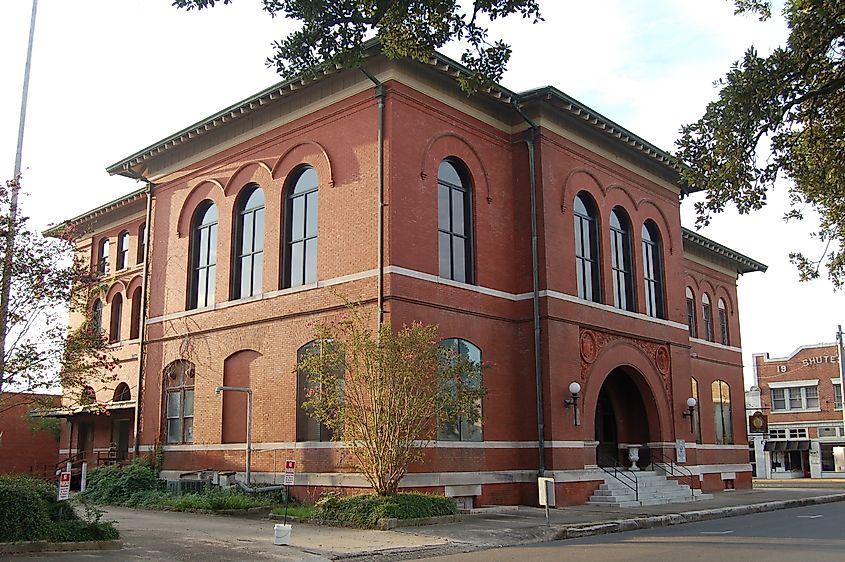
Opelousas also served as the state capital of Louisiana, this time only for a brief period during the Civil War from 1862 to 1863 after Baton Rouge had fallen to Union forces. One of the oldest towns in Louisiana, its rich history predates its time as capital with roots in Native American, French, and Creole cultures.
Visitors can learn more about all these fascinating facets of the town’s history at the Opelousas Museum and Interpretive Center on Main Street where you can also check out displays and artifacts relating to the legendary Jim Bowie.
Kingston, Tennessee
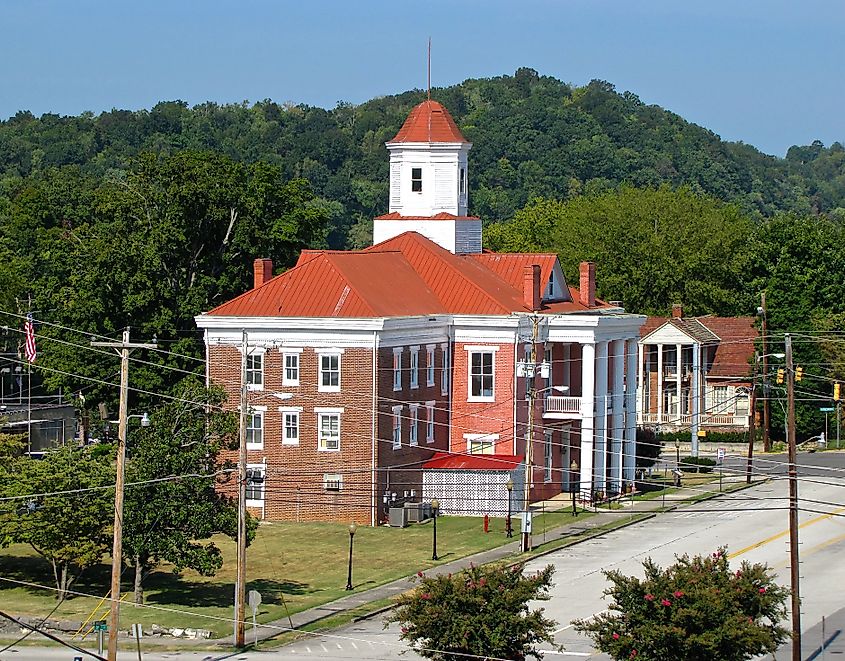
Kingston might well be the shortest-lived state capital in US history, serving as Tennessee's state capital for just a single day in 1807, a tenure that was part of a political compromise to fulfill a treaty obligation with the Cherokee Nation. Yet despite its short tenure, Kingston's role in early Tennessee history remains a point of local pride.
Its scenic location at the confluence of the Clinch and Tennessee Rivers makes Kingston a great place for a visit, with plenty of outdoor recreation opportunities to enjoy at places like nearby Watts Bar Lake, which offers fishing, boating, and other water sports. Historic landmarks worth visiting include Fort Southwest Point, a reconstructed early 19th-century fort.
Wheeling, West Virginia
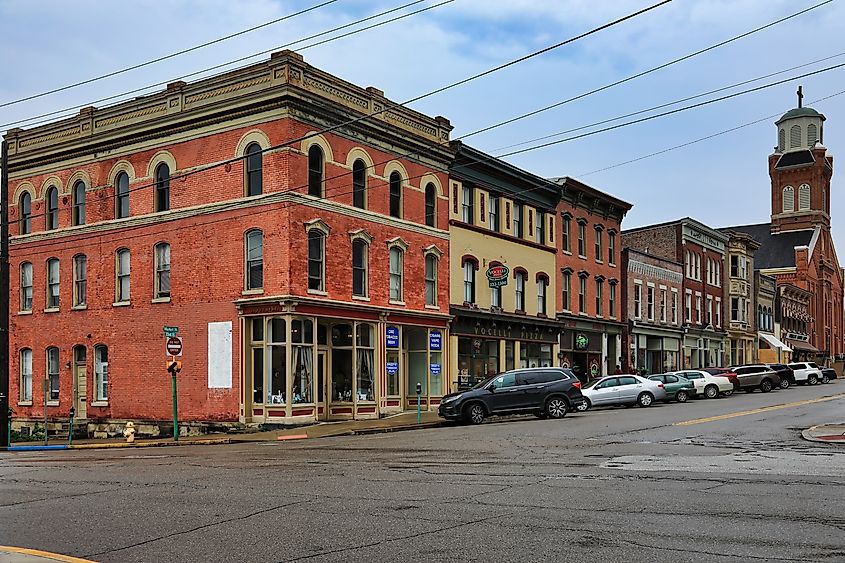
Wheeling has the unique distinction of serving as the capital of West Virginia not just once but twice: first from 1863 to 1870 and again from 1875 to 1885. Located in the northern panhandle of the state along the Ohio River, Wheeling played a crucial role in the state's formation during the Civil War when West Virginia separated from Virginia in order to remain in the Union.
Historic landmarks relating to this and other areas of Wheeling’s past can be explored at West Virginia Independence Hall, where the first West Virginia Constitutional Convention met in 1861 to plan the establishment of the state. Other notable attractions include the Wheeling Suspension Bridge, a National Historic Landmark and the world’s oldest still-operating suspension bridge, and Oglebay Resort, a popular tourist destination that not only provides accommodations but also houses the Mansion Museum with its well-preserved furnishings and décor.
Guthrie, Oklahoma
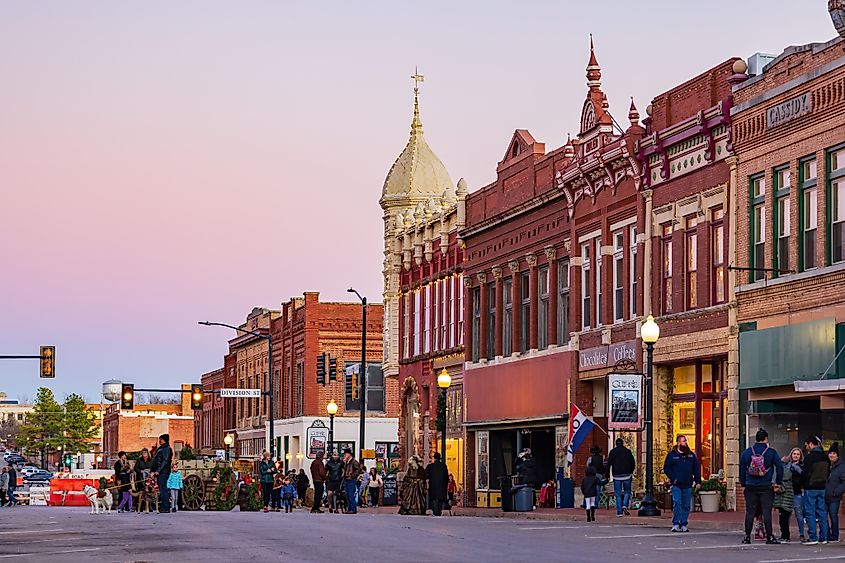
Oklahoma's first state capital from 1907 to 1910, Guthrie, is located in the central part of the state just 30 miles north of Oklahoma City. Established during the Land Run of 1889, Guthrie’s time as state capital was short-lived as a controversial election in 1910 saw the capital relocated to Oklahoma City. Today, forward-thinking conservation efforts have ensured that Guthrie is home to one of the largest contiguous urban historic districts on the National Register of Historic Places.
Popular things to do here include visiting the Oklahoma Territorial Museum, which is housed in one of the state’s old Carnegie libraries and features fascinating displays chronicling the state's early history. The State Capital Publishing Museum, housed in a beautiful building, is also worth visiting.
New Bern, North Carolina
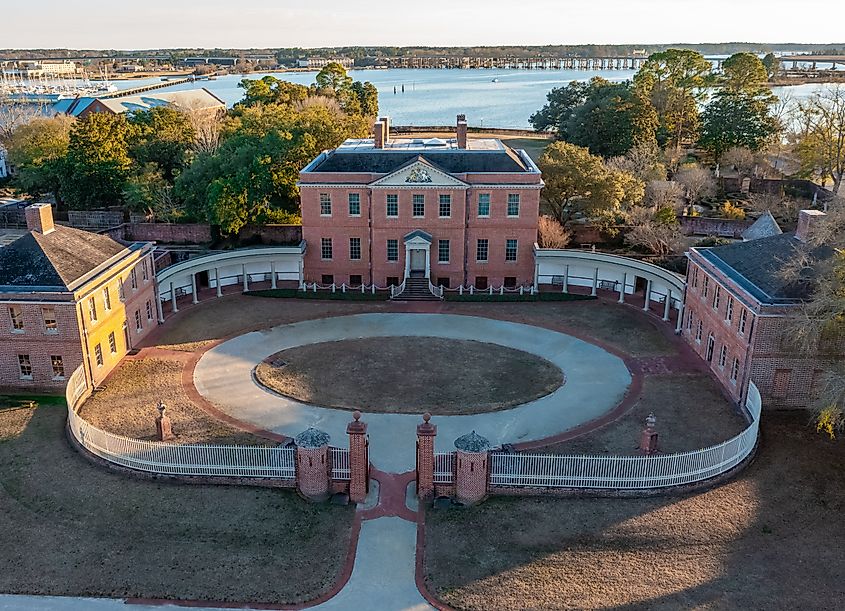
Located at the confluence of the Neuse and Trent Rivers, New Bern served as the colonial capital of North Carolina from 1770 to 1792. Founded in 1710 by immigrants from Switzerland and Germany, it's the state’s second-oldest European-established community (the oldest is St. Augustine in Florida) and was an important port and trading center during colonial times.
These days, New Bern is a popular tourist destination as its rich colonial and early American history is very easy to spot around town. Highlights include the town’s three must-explore historic districts, including the downtown area, Riverside, and the Ghent neighborhood; and spectacular Tryon Palace, a reconstruction of the original 18th-century governor's mansion (guided tours are available).
Williamsburg, Virginia
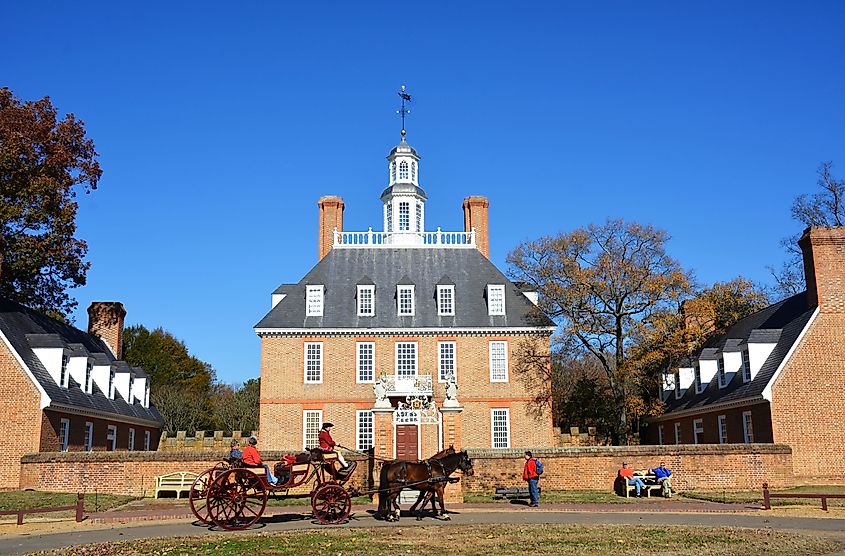
Williamsburg served as the capital of Virginia from 1699 to 1780, a crucial period that included the American Revolution. Located on the Virginia Peninsula between the James and York Rivers, its 70-plus years as state capital only ended when the seat of government was moved to Richmond for better protection during the Revolutionary War.
Today, Williamsburg is best known for Colonial Williamsburg, a sprawling living history museum that authentically recreates 18th-century life in the old colonial capital. This 301-acre historic area features restored and reconstructed buildings, costumed interpreters, and hands-on experiences that bring colonial America to life.
Natchez, Mississippi
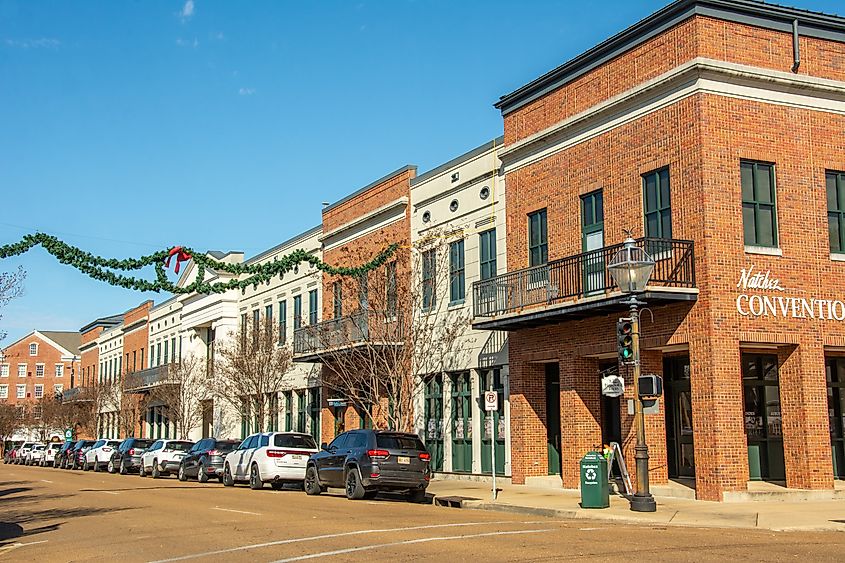
Perched on a bluff overlooking the Mississippi River, Natchez was a logical choice for state capital, a title it held from 1817 to 1821 before the government was moved to a more central location in Jackson. Founded by French colonists in 1716, it's one of the oldest and most important European settlements on the lower Mississippi River and remains a popular tourist destination.
This attractive former capital is famous for its vast antebellum architecture collection, boasting more than 1,000 structures listed on the National Register of Historic Places. The city's crown jewels include grand plantation homes like Longwood, Stanton Hall, and Melrose, all of which offer tours that do a great job of showcasing the opulence enjoyed by the Old South’s privileged elites.
The Final Word
Together, these ten former state capitals of the American South offer a fascinating journey through the region's rich history. From the colonial charm of Williamsburg to the antebellum grandeur of Natchez, each town played a unique role in the broader narrative of the United States. While their roles as seats of government were sometimes brief, the impact of this status has left an indelible mark on the architecture, culture, and local pride of these small towns in the American South that were once state capitals.











